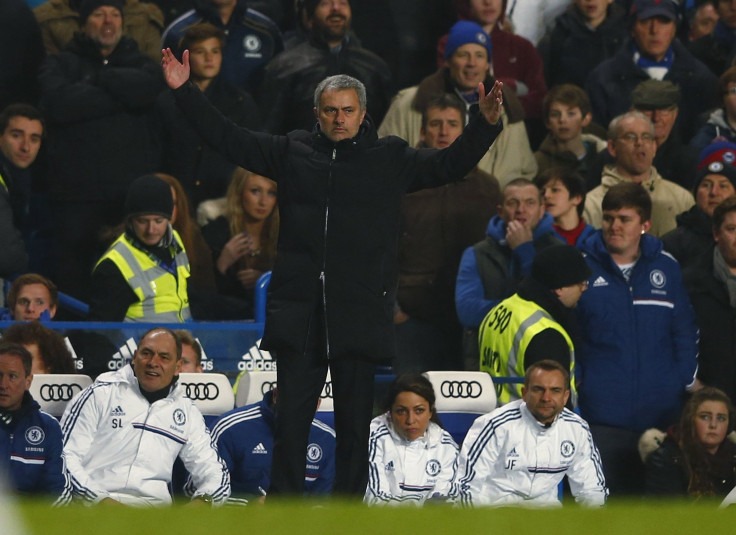Chelsea Vs. Galatasaray: Prediction And Tactical Analysis For Champions League First Leg

Chelsea against Galatasaray may not have the glamor of some of the other Champions League last-16 ties, but its storylines make it as intriguing as any.
There was a sense of inevitability when the teams were drawn together, with thoughts immediately turning to one man. Didier Drogba will for the first time go up against the club for which he near single-handedly delivered the long-sought after European Cup less than two years ago. The Ivorian veteran will also be going up against the man who brought him to Stamford Bridge almost exactly 10 years ago and with whom there is a mutual respect that gushes out whenever one talks of the other. Another of Mourinho’s most influential disciples will also be in opposition to his Chelsea side in Istanbul on Wednesday in Wesley Sneijder. It promises to be something of a love in then.
Not quite. Because while two members of his team may have nothing but acclaim with which to speak of Mourinho, the same cannot be said for Galatasaray coach Roberto Mancini.
Having replaced Mancini at Internazionale after the Italian had won three consecutive Scudettos, Mourinho was less than effusive about his predecessor. The fact that Mourinho was approached while Mancini was still in the job hardly helped their relationship. But if the sizeable ego of Mourinho is hard to ignore, Mancini’s also came across after his successor did something that he notably failed to achieve in winning the Champions League. When subsequently asked whether he thought that he had built the foundations to the success, Mancini’s response was far from bashful, exclaiming that he had “built the roof, too!”
The feud continued when Mourinho’s Real Madrid qualified for the Champions League last-16 at the expense of Mancini’s Manchester City last season. The Portuguese’s suggestion that it was incredible that a club with City’s resources had failed in the competition for a second successive season was not exactly subtle in its intention.
For better and for worse it is the Champions League that has defined the two coaches who came to their current profession from very different backgrounds. Mourinho, who learned the ropes initially as an interpreter at Barcelona after an extremely modest playing career, came to wide prominence by extraordinarily leading Porto the European Cup in 2004. After repeating the feat with Inter, what is surely his biggest disappointment as a manager came when failing to win a 10th European Cup for Real Madrid. Still, the chance to become the first coach in history to win the competition with three different clubs is surely an achievement that still drives him.
In contrast, this is only the second time in six attempts that Mancini has made it beyond the group phase. While it would be wrong to take anything away from his achievement this season, it is also true that Galatasaray’s progress owed as much to Juventus’ failings and a highly controversial pitch on which they got the pivotal win over the Italians.
It is in the elevated air of the Champions League where a coach’s failings, especially tactical ones, will generally be found out. And that has been the case with Mancini. Despite the considerable domestic success he has enjoyed in his management career, it would be hard to actually ascribe a dominant characteristic for Mancini’s sides. Against teams with a coherent tactical plan, he is often found scratching around for answers. Over two legs, Mourinho -- a master at tailoring his strategy for specific opponents -- gives Chelsea a huge advantage to progress.
At City, Mancini lined up in a 4-2-3-1, but at Galatasaray, with the striking talents of Drogba and Burak Yilmaz he has been faced with the conundrum of fitting both in to the team, along with Wesley Sneijder, who for all his talent can be a passenger without the ball. To do so, he has tried both a 3-4-1-2 and a 4-3-1-2. In both scenarios Galatasaray’s strength comes from the heart of their team, Felipe Melo and Selcuk Inan. With Nemanja Matic, who has made a major impact since his January signing, ineligible for Chelsea, the duo will look to control the midfield.
There are major flaws that Chelsea could expose elsewhere, however. Regardless of what formation Mancini opts for -- it may be a 4-2-31, with Burak wide -- Galatasaray are likely to be vulnerable down the flanks. Mancini has wisely dispensed with Albert Riera as a converted left-back, but he still has Emmanuel Eboue performing similarly unnatural defensive duties on the right. The prospect of Eden Hazard going up against the former Arsenal man does not look promising from a Galatasaray point of view.
Mourinho could well lineup with Ramires in the side at the expense of Oscar, giving Chelsea more solidity in the middle and more pace on the break. While Mourinho won’t go out all guns blazing, he will certainly be looking to get an away goal. Although Galatasaray’s defense has been more solid of late, with four clean-sheets in their last five matches, you wouldn’t bet against them getting it.
At the other end, John Terry should be perfectly equipped, in terms of skillset and knowledge, to deal with Drogba, but the 35-year-old could still cause enough disruption to help his side keep their record alive of scoring in every match at the Turk Telekom Arena this season.
Prediction: Galatasaray 1-1 Chelsea
© Copyright IBTimes 2025. All rights reserved.





















